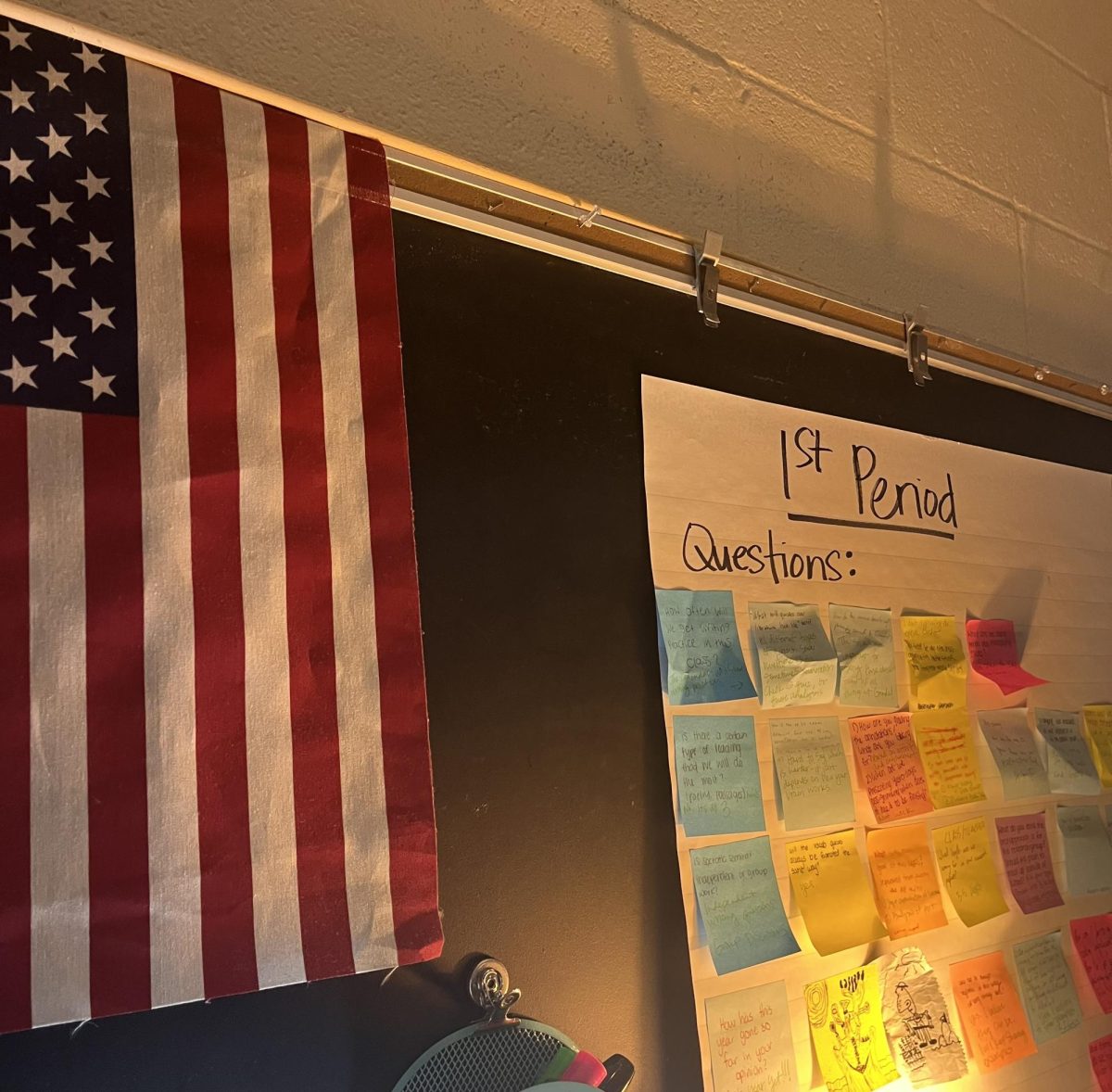Due to students’ concerns, last names will be kept anonymous.
Classrooms are finally quieter, but not because anyone started listening.
What is House Bill 208?
The new Kentucky phone ban law, also known as House Bill 208, forces all Kentucky school districts to adopt new policies that prohibit, at a minimum, student cell phone use during instructional time or ban them during the full school day, with some exceptions. These exceptions include emergencies and when specifically authorized by a teacher for instructional purposes. This bill was sponsored by Rep. Josh Bray, R-Mount Vernon, and was signed by Governor Andy Brashear on March 26, 2025.
JCPS has been working in the last few months to establish its policy before the law takes effect. Leaders began developing one in February after a Jefferson County Board of Education member initiated a conversation about the need for a ban.
State Rep. Josh Bray quoted, “There have been studies done that show that in school districts that implemented policies to prohibit their usage during instructional time, test scores have jumped by 6% pretty immediately. And that’s most particularly among the lowest-achieving students.”
Democrats reported their support for this Republican legislation, believing it will result in better outcomes for student education.
“My hope is with this we’ll be able to improve our students’ behaviors in the classroom, be able to get back to learning, and also make it a much safer experience for them to be there throughout the day, so thank you,” said State Rep. Anne Gay Donworth, D-Lexington.
Students all over the country have mixed feelings about not having access to their phones. “I believe that people need to lock in and not be on them during lessons, but if it’s independent work, then they dictate if they wanna be productive or not,” said Leela, a sophomore from Nebraska.
Most students agree that phones should be prohibited to a point: “Teachers shouldn’t be able to take a student’s phone. They should be able to tell them not to use it, punish the student if they do use it, etc, but they should not be able to take the physical phone” said nineteen-year-old Laney from Minnesota.
Other students are outraged by the idea, such as Lex, a student from England. “I get really upset with it and angry because I’m mostly texting my dad throughout the day,” said Lex.
How does this affect students?
Students will no longer have access to their phones unless allowed to do so by a teacher. Most will be required to put their phone into something called a Yonder pouch, which is a device that uses a magnetic lock to keep students from accessing their phones until they are allowed to have it. Some may find themselves focusing more on lessons, while others will struggle without the help of their phones. Nevertheless, the debate on whether phones should or should not be banned in schools remains strong, the bill sparking further tensions between sides.
Why should phones be banned?
Many students openly admit that their cell phones distract them and that they focus better in school without them. “People will pay more attention to the curriculum, there will be less AI usage on assignments, and distractions will be lowered,” said Lola.
When distracted by a phone, such as receiving a text message, the student’s brain will need 20 minutes to refocus on the lesson in front of them—20 minutes.
“It seems that everyone—including parents—agrees that excessive phone use is detrimental to teenagers,” says Cassandra Dorn, a high school teacher in New Jersey. “We know about the negative effects on academic performance and mental health. Yet, as a society, we really haven’t had the collective will to address the problem.”
Another problem that lingers is the fact that phones have cameras, meaning that anyone can be photographed or videotaped at any time without knowing. “People photographed teachers and inappropriately edited these photos and circulated them,” reported one respondent.
Why shouldn’t phones be banned?
The benefits of phones are often overlooked when it comes to the discussion of their position in schools. Phones are useful for communication, providing an easy way to give and receive information. “I can communicate with my parents if I don’t have a ride or if I have an after-school meeting,” Izzy said.
Oftentimes, this communication is needed for students, for example, if something is going on with a family member, or there’s any other issue outside of school. “I had a friend’s grandmother pass away while she was in class. Her mother tried to call her, her phone rang, and she was given detention for having her phone in her backpack during class,” said Laney
A phone is also an important tool that can be used to help in dangerous situations. Without access, students are exposed to harm that could have been avoided. “I had been getting harassed in the girls’ restroom, and I was unable to contact help due to my phone being unavailable. I was bullied and harassed for forty minutes straight, and no one came to help me,” said Anonymous.
How do you feel when you can’t access your phone during the school day?
Students tend to feel uneasy without access to phones in school, due to the loss of connection with peers and a potential feeling of isolation, as well as concerns about missing out on important information or notifications.
Students and parents are also concerned about the ability to quickly contact each other in case of emergencies or if a student needs assistance. The loss of access to communication tools creates anxiety and a sense of vulnerability.
Many students reported feelings of fear when asked the question: How do you feel when you can’t access your phone during the school day?
“I don’t feel any sort of way unless there’s an emergency… Like, what if there’s some sort of tragedy and I’m unable to reach out to my family? What if I’m injured and I can’t tell anyone?” said Evie, a sophomore from Illinois.
“I feel like it is unnecessary, and when I finish work early, I’m bored and can’t do anything productive,” said Kaylee, a sophomore at Bullitt East.
“I feel unsafe, my phone is my only source of communication with my parents, and without that, I’m unable to contact them if I am in danger,” said Lola, a sophomore at Bullitt East.
“It makes me anxious, especially because of health conditions I have,” said Anonymous.
“I always felt nervous, like something would happen and I wouldn’t be able to talk to my parents,” said another, who wishes to stay Anonymous.
In conclusion, the removal of phones in school tends to disrupt students’ social connections, routines, and sense of security, leading to possible feelings of unease and anxiety.
What changes can be made to improve this situation?
The issue is that schools cannot find a proper balance for phone time, which is why many students want adjustments to their policies that allow phones on occasion, but still restrict them when needed. “They should have it during free time and when they are finished with work. Doing work equals no phone time.” Said Ethan, a fifteen-year-old high school student from New York.
“I would give all students the option to keep their phones in their backpacks or pockets, given that they followed the rules specified by each teacher and with the knowledge that consequences would occur if they did not follow these rules,” said Laney.
Another change could be to punish those specifically responsible for abusing the use of phones. “Maybe stricter/more punishment for students who make it an issue,” said Madison, a sixteen-year-old high school student.
“If a kid is so distracted by their device and it hurts their learning and gives them bad grades, they need to be held back instead of a simple warning,” said Lola, a fifteen-year-old high school student.







